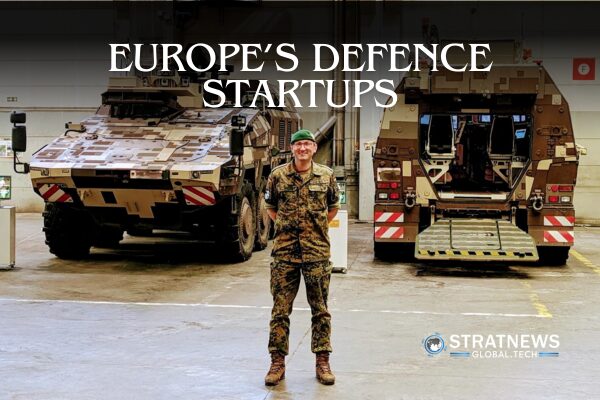Military Veterans Fuel Europe’s Defence Tech Boom Amid Ukraine War
Former soldiers are taking a leading role in transforming Europe’s defence technology sector. Their combat-tested insights are shaping products and driving investment at record levels. As the war in Ukraine continues, demand for effective battlefield tools has surged, pushing veterans into key roles as founders, advisors, and investors.
One such example is Matt Kuppers, a former German officer and co-founder of Defence Invest. While testing an anti-drone system from an Austrian startup, he noticed the barrel heated too quickly during use. This detail, overlooked by the civilian team, affected the weapon’s accuracy. His feedback, based on infantry experience, is now being used to improve the design.
This story reflects a broader trend: veterans now lead around one-quarter of Europe’s 80-plus defence startups, while most top defence firm CEOs have no military background.
Record Investment Powers Rapid Growth
Venture capital funding for European defence technology soared to $5.2 billion in 2024—over five times higher than before the war. The spike, driven by increased NATO budgets and urgent Ukrainian needs, has accelerated product development timelines from years to mere months.
Former officers like Marc Wietfeld, founder of ARX Robotics, are bringing real-world insight into product design. “You can’t solve a problem you don’t know,” he said, stressing the importance of lived military experience.
Veterans are also helping startups navigate complex military procurement systems, which is vital for launching successful defence products.
Battlefield-Tested Tech, Built by Veterans
Many veteran-founded startups focus on fast, scalable technologies such as drones and AI tools. Florian Seibel, a former helicopter pilot, co-founded Quantum Systems—now valued at $1 billion—and launched another drone company, Stark.
Other firms like Arondite and BlinkTroll are creating battle-planning software and military training tools. Australia’s Francisco Serra-Martins, a combat engineer turned entrepreneur, co-founded Terminal Authority in Ukraine. His firm has grown from making kamikaze drones to cruise missile systems.
According to Serra-Martins, veterans provide an edge by understanding what works in the field. “They know what is needed, what is hype, and what soldiers will actually use,” he said.
Technology, Experience and Trust
European startups are now critical suppliers to the Ukrainian military. However, gaps in experience can still lead to failure. Ukrainian soldier Viktoriia Honcharuk shared how one unmanned vehicle, despite a promising design, failed in action—wasting €300,000. She believes more companies should be founded by those with military backgrounds to avoid such costly errors.
McKinsey data shows that investment in European defence startups rose by more than 500% between 2021 and 2024 compared to 2018–2020. Veterans say modern tech has lowered entry barriers, making it easier for soldiers to become innovators.
“Soldiers don’t have time to learn complex systems while under fire,” said Jan-Erik Saarinen, a Finnish veteran and founder of Double Tap investments. “You need real combat experience inside the companies making these tools.”
with inputs from Reuters


